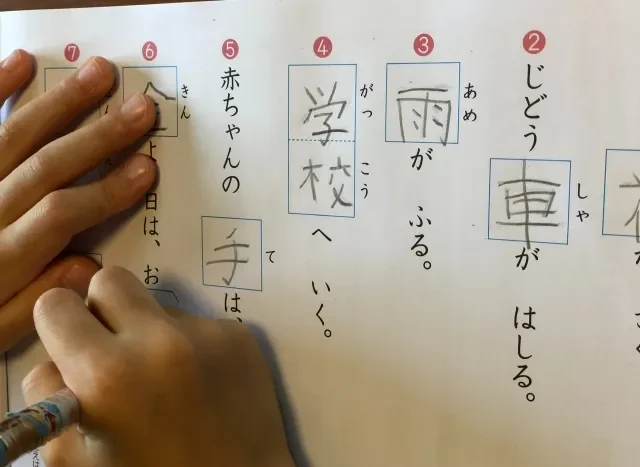For foreigners! Useful Japanese phrases commonly used in daily conversation and business
When learning Japanese, there are so many different types of expressions that it is often difficult to know which ones to learn. In particular, Japanese phrases used in daily conversation and in business situations may seem difficult for foreigners, as they need to be used in different situations and with different people.
Therefore, in this article, we have compiled a list of useful Japanese phrases for foreigners studying Japanese that you should at least learn in daily life and business situations. By learning these phrases, you will be able to live and communicate more smoothly in Japan.
Let's start with basic greetings, expressions of gratitude, and simple ways to reply, and gradually learn phrases for different situations. We will also introduce some useful expressions for communication while traveling and at work.
▼Goandup Picks Click here for recommended articles!
- Required before studying abroad! Goandup Nihongo+, an online Japanese language learning service
- This page introduces services for foreigners who wish to study in Japan or improve their Japanese language skills to learn Japanese online.
- Goandup Salon" community for foreigners living in Japan
- We introduce an online community where foreigners living in Japan can exchange information and interact with each other to support their life in Japan.
- Goandup Study" supports foreigners who want to study in Japan.
- This section introduces study abroad support services that provide comprehensive support to foreigners who wish to study in Japan, from preparation for study abroad to living in Japan.
- Where can I buy a prepaid SIM in Japan? Recommended SIM cards for foreigners are also introduced.
- How to purchase a prepaid SIM and suitable SIM cards for foreigners.
- The Complete Guide to Pocket Wi-Fi in Japan for Foreigners!
- We introduce how to select and recommend pocket Wi-Fi products that can be used conveniently in Japan.
- The Complete Guide to Finding a Job in Japan! Finding a job, changing jobs, and part-time work for foreigners
- This site provides foreigners who want to work in Japan with comprehensive information on how to find a job, recommended job sites, and other information necessary to find a job.
Japanese Phrases for Everyday Life

There are many Japanese phrases used in daily life that form the basis of communication, starting with basic greetings, expressions of gratitude, and simple ways to reply. By learning these phrases, you will be able to interact smoothly with Japanese people and build a good relationship with them.
The Basics of Greetings
In Japan, it is common to use different greetings for different times of the day.
・Good morning (Ohayou gozaimasu)
→Morning Greeting
・Hello (Konnichiwa)
→Noon Greeting
・Good evening.
→Nightly greetings
These greetings may be shorter "Ohayo", "Konnichiwa", or "Good evening" for family members or close friends, but for first-time visitors or superiors, be sure to greet them politely by adding "arimasu".
In addition, the following expressions are used as parting greetings.
・Sayonara (Sayounara)
→Farewell greetings used in close relationships.
・Good work (Otsukaresama deshita)
→Greetings upon completion of work or activity
・Shitsurei shimasu
→Polite parting greetings to superiors and first-time visitors
Expressions of Gratitude
The following two types of expressions of gratitude are typical in Japanese.
・Thank you (Arigatou gozaimasu)
→Polite expressions of gratitude used in formal situations and with superiors
・Thank you (Arigatou)
→Casual expressions of gratitude used in close relationships, such as with friends and family
Use these expressions when you want to express your gratitude for something you have done or a gift you have received. You can also add "thanks" or "really" as shown below to express stronger feelings of gratitude.
・Thank you very much (Doumo arigatou gozaimasu)
・Thank you so much (Hontou ni arigatou gozaimasu)
Expressing gratitude is very important for smooth human relations. Learn to express your gratitude in Japanese and be able to use it in appropriate situations.
Reply Basics
There are two main ways to reply in Japanese.
・Yes (Hai)
→Replies expressing affirmation or agreement
・No (Iie)
→Replies expressing denial or disagreement
By using these simple words, you can clearly communicate your intentions to others.
In Japanese conversation, however, people tend to avoid directly saying "no" to the other person's opinion. Instead, the following euphemistic expressions are often used to convey a negative opinion.
・Sou desu ne
・It may be a little difficult (Chotto muzukashii kamo shiremasen)
In addition to "yes" and "no," there are other words of affable speech that indicate that you are listening to what the other person is saying, such as
・Sou desu ne
・I see (Naruhodo)
・Okay (Wakarimashita)
Appropriate use of these expressions will facilitate conversation.
Understanding how to respond in Japanese and choosing appropriate expressions for different situations are important skills for effective communication.
Apologies and Requests
The most common phrase used in Japanese to apologize or make a request is "Sumimasen (Summisen)」. This phrase is used when you admit your fault and apologize to the other person, or when you ask for something. Sumimasen" is the equivalent of "Excuse me" or "I'm sorry" in English, and is a useful phrase that can be used in many situations.
In an apology situation, it is a good idea to clarify what specifically you are apologizing for, as follows.
・Sorry, I'm late (Sumimasen, okurete shimatte)
・Sorry, my mistake (Sumimasen, watashi no machigai deshita)
We may also use more polite expressions such as the following
・I am very sorry (Taihen moushiwake gozaimasen)
・I deeply apologize (Fukaku owabi moushiagemasu)
When making a request, the following "excuse me" should be followed by the specific details of the request.
・Excuse me, could you please get this for me? (Sumimasen, kore o totte moraemasu ka?)
・I'm sorry, could you please explain again? (Sumimasen ga, mou ichido setsumei shite itadakemasu ka?)
By making a polite request, you will make a good impression on them.
To learn more about the usage of "excuse me," we recommend the following article.
▶︎ What does the Japanese word "Sumimasen" mean? Explanation of business usage and example sentences
Appropriate use of apology and request phrases is very important for smooth communication. Let's learn phrases for apologies and requests in Japanese and use them in a variety of situations.
Useful phrases while traveling

When traveling in Japan, you may get lost or have trouble ordering at restaurants. Let's learn some useful Japanese phrases for such situations while traveling.
When asking for directions
If you are lost or want to know how to get to your destination, use the following phrases to ask.
・Sumimasen, ○○ wa doko desu ka? (Sumimasen, ○○ wa doko desu ka?)
The "→○" part should include the name of the destination, the name of the building, etc.
・Can you tell me the way to ____? (○○ e no michi o oshiete itadakemasu ka?)
It is also helpful when asking for directions if you know the following words that indicate direction and location.
・Right (Migi)
・Left (Hidari)
・Straight (Massugu)
・Over there (Mukou)
・Nearby (Chikaku)
・Next door (Tonari)
・Opposite side (Mukai gawa)
For example, you can get more detailed directions by giving specific location information as follows
・Excuse me, where is the convenience store near the station? (Sumimasen, eki no chikaku no konbini wa doko desu ka?)
・Is the bank across the street from the post office? (Ginkou wa yuubinkyoku no mukai gawa ni arimasu ka?)
When we went to the restaurant
Ordering in a restaurant may be confusing if you do not understand Japanese. In such cases, try using the following phrases.
・Can I see your menu? (Menyuu o misete itadakemasu ka?)
→It is convenient to order while looking at the menu
・I order this (Kore o chuumon shimasu)
→If the Japanese on the menu is too difficult to read, just point to the picture and order!
・Okaikei o onegaishimasu
→Use it to make a payment.
When paying at a restaurant, it is common in Japan to pay in cash, but recently more and more restaurants are accepting payment by credit card or electronic money. It is a good idea to check the payment method in advance.
When you are shopping
When shopping, use the following phrases to confirm prices, try on items, and communicate your intent to purchase.
・Kore wa ikura desu ka? (Kore wa ikura desu ka?)
→Use to ask for a price.
・May I try these on? (Kore o shichaku shitemo ii desu ka?)
→Use it when you want to try on a dress.
・Buy this (Kore o kaimasu)
→Used to communicate your intention to purchase.
To enjoy your shopping experience, it is useful to learn these phrases. They will help you communicate smoothly with store clerks and make your shopping experience more fulfilling.
Please try to use these useful Japanese phrases in various situations during your trip. If you can communicate in Japanese, your trip will be more enjoyable.
Communication in the workplace

In the workplace, proper communication has a significant impact on work efficiency and the building of relationships. Here we introduce some Japanese phrases that are useful in business situations.
Greetings and daily interactions.
・Good morning (Ohayou gozaimasu)
→ Greetings when you arrive at work in the morning
・I'm off (Ittekimasu)
→Greetings when you leave your workplace
・Itterasshai
→Greeting when others leave the workplace
・Otsukaresama desu
→Æ Greetings when you leave for work or when you call out to a co-worker who is leaving.
These greetings mark the beginning and end of the day at the workplace and play an important role in promoting fellowship with colleagues.
During the exchange of ideas at the meeting
・In my opinion... is (Watashi no kenkai dewa... desu)
→Used to express one's own opinions and thoughts.
・My proposal is... (Watashi no teian wa... desu)
→This is an expression used when proposing something at a meeting.
・What do you think about that? (Sore ni tsuite, dou omoimasu ka?)
→This phrase is used when asking for another person's opinion.
In meetings, it is important to use these phrases to clearly communicate your views and actively seek the opinions of others. Through constructive discussion, you will be able to generate better ideas and solutions.
With careful email communication.
・Thank you for your reply (Go henshin arigatou gozaimasu)
→This is an expression of gratitude when you receive a reply by e-mail.
・○○-sama, osewa ni natte orimasu
→directional marker or indicatorUsed to start an email with a polite greeting
・Thank you for your continued support (Hikitsuzuki, yoroshiku onegai itashimasu)
→This is an expression used at the conclusion of an email when you want to maintain a good relationship with someone in the future.
Polite language is required in business e-mails. Appropriate use of these phrases will show respect to others and facilitate smooth communication.
To learn more about writing business emails, please also read the following articles
▶︎ Explanation of how to write Japanese business e-mails, manners, and commonly used words and phrases.
Learning Japanese phrases in the workplace will improve communication with coworkers and increase work efficiency. Proactively use these expressions in your daily work.
Serious employment support to help you realize your dream of working in Japan!

Do you want to work in Japan?
Let us "Goandup" make that dream a reality!
【 Program Features 】
✅ JLPT N3 level Japanese language acquisition
✅ Thorough preparation for the specific skills test
✅ Full support for job hunting in Japan
Business-focused one-on-one lessons will help you find a job in Japan in the shortest possible time.
【 Program Menu 】
- Individual Japanese language lessons
- Intensive curriculum to obtain N3, especially specialized lessons for business Japanese that can be used at work.
- Intensive curriculum to obtain N3, especially specialized lessons for business Japanese that can be used at work.
- Preparation for the Specific Skills Test
- Customized materials for specific skill tests will be used to focus on frequently asked questions and learning to pass the test.
- Customized materials for specific skill tests will be used to focus on frequently asked questions and learning to pass the test.
- Resume and CV support
- To create resumes and CVs tailored to Japanese corporate culture, and to brush up on self-promotion and motivation for application.
- To create resumes and CVs tailored to Japanese corporate culture, and to brush up on self-promotion and motivation for application.
- Interview Preparation
- Guidance on areas for improvement through mock interviews and feedback based on corporate interview scenarios. Learn interview etiquette and behavior unique to Japan.
- Guidance on areas for improvement through mock interviews and feedback based on corporate interview scenarios. Learn interview etiquette and behavior unique to Japan.
- career consulting
- Provide introductions to companies that match the participant's career goals, select companies to apply to, and provide advice on the level of knowledge required by the companies to which the participant is applying.
- Provide introductions to companies that match the participant's career goals, select companies to apply to, and provide advice on the level of knowledge required by the companies to which the participant is applying.
- Chat Support
- In addition to one-on-one individual lessons, we also accept casual questions via DM (visa application, living support, assistance in finding a room, etc.).
If you are serious about your career in Japan, join us now!
▶︎ for more informationclick here.
We will do our best to support your success in Japan!
summary
In this article, we have introduced some commonly used Japanese phrases in daily conversation and business that foreigners should learn at least in their daily life in Japan. By learning these phrases, you will be able to communicate more smoothly with Japanese people and enjoy your life in Japan more richly.
However, because of the wide variety of Japanese expressions, it may be difficult to try to memorize all of them at once. First, it is important to learn the phrases introduced in this article little by little and try to use them in actual conversations. With practice, you will naturally become more confident in communicating in Japanese.
We hope this article will help foreign residents gain confidence in communicating in Japanese and enjoy life in Japan even more. Please continue to study Japanese and deepen your understanding of Japanese culture. We are rooting for you!
Your support will help us!
Thank you for visiting Goandup Picks. Our mission is to provide you with more useful information to show the world what Japan has to offer.
Your support will help us to further enhance our activities, so please support us!






